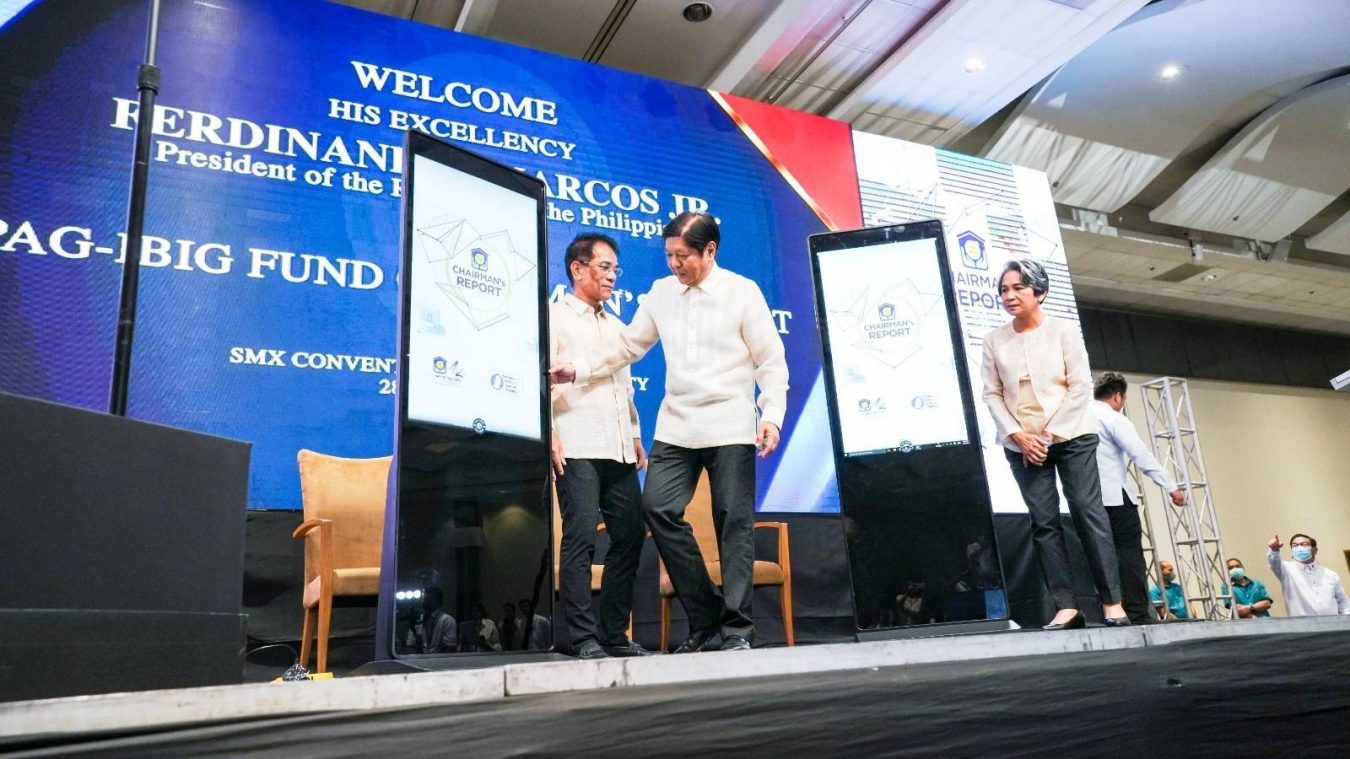
President Ferdinand R. Marcos Jr. on Tuesday called on the Home Development Mutual Fund (HDMF) or the Pag-IBIG Fund to further build on its successes in the past 45 years to address the country’s housing backlog, urging it to work closely with the Department of Human Settlements and Urban Development (DHSUD) to attain this goal.
In his speech during the Pag-IBIG Fund Chairman’s Report in Pasay City, President Marcos said Pag-IBIG Fund’s recent financial record is an undeniable proof not only of its success, but also of how its operations and services have redounded to the benefit of its individual members and to the nation’s economy.
“Thus, I call upon the Fund to further build on this growth and momentum to continue to improve the lot of the Filipino workforce, and also to significantly assist in addressing our housing backlog as an industry leader in home mortgage financing,” the President said.
“On this note, I challenge the Fund to work closely with the Department of Human Settlements and Urban Development, saddled as it is by budgetary constraints, in order to find effective strategies to ease our housing situation, by leveraging on your industry experience, expertise and acumen,” the chief executive added.
With the rapid population growth since the Fund’s creation 45 years ago, the Philippines, President Marcos said, is still facing a housing backlog as the country needs 6.5 million socialized housing units to stabilize the situation.
“It is a daunting task, considering the manifold physical, social and economic factors that must be considered,” President Marcos pointed out.
The chief executive encouraged Pag-IBIG’s officers and employees to be guided by the principles of transparency and accountability in carrying out their mandate and ensuring judicious management of the Fund and of the members’ hard-earned money.
The President also acknowledged developers, employers, housing industry players and other partners for their invaluable contributions to Pag-IBIG Fund’s continued success, as he hopes for strengthened partnerships on the efforts to provide adequate access to decent and affordable human settlements.
President Marcos recognized the pillar of the Pag-IBIG Fund—its 2.6 million-strong members, noting that with their continued support, the Fund has grown into a financially strong and secure institution, boasting more than Php827 billion in total assets.
“Indeed, the members’ contributions are the lifeblood of the Pag-IBIG Fund and the reason for its continued success,” the President stressed as he noted that it has been an exemplar of mutually beneficial multi-sectoral partnership and even love etched in its name.
“I therefore exhort the members to remain ever-productive in their employment and commercial pursuits, so as to continue to sustain the Pag-IBIG Fund, animated by the same spirit of mutual help and benefit that was the theory and blueprint for its creation 45 years ago,” President Marcos said.
Citing the Chairman’s Report, the chief executive said Pag-IBIG Fund released last year more than Php117 billion in housing loans to more than 105,000 members.
The Fund also provided more than Php53 billion worth of short-term loans to more than 2.6 million members to help with their immediate financial needs and has continued to promote financial inclusivity and the value of savings to Filipinos.
Nearly 1 million members also saved last year more than Php39 billion under the voluntary savings program of the Pag-IBIG Fund, a notable 54 percent increase from the amount of savings recorded in the previous year.
Through the prudent management of its members’ funds, the Pag-IBIG Fund has earned an impressive annual net income of more than Php44 billion and declared more than Php42 billion in dividends, President Marcos noted.
The HDMF was established in 1978 through Presidential Decree No. 1530 issued by the late President Ferdinand E. Marcos Sr.
The Fund enabled shelter financing through a system of voluntary contributions from its members, both from the public and private sectors.#

